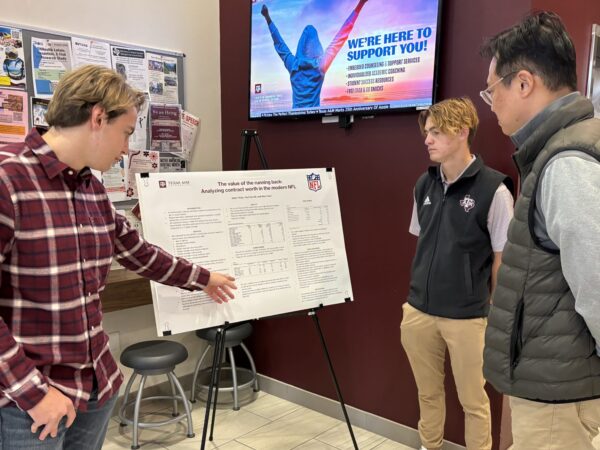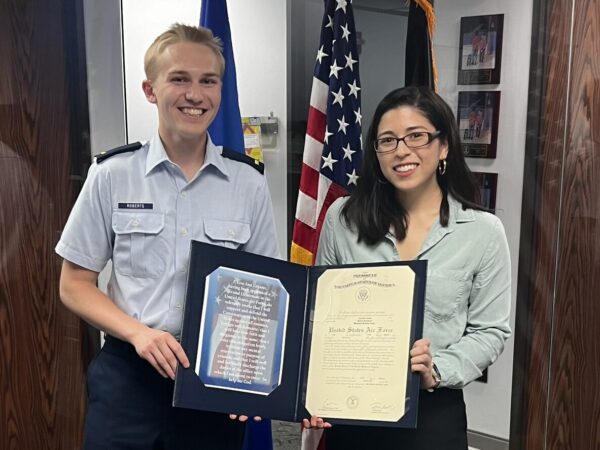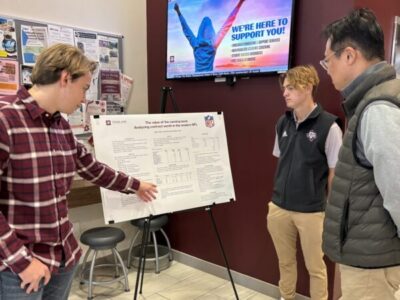How a grant will address gaps in adolescent mental health access in Brazos Valley
A new grant from the Health Resources and Services Administration awarded to Dr. Carly McCord at Texas A&M University looks to reduce a shortage of adolescent mental health professionals by providing necessary funding and training.
McCord says the grant is part of the Behavioral Health Workforce Education and Training Program for Professionals by HRSA which will provide upwards of $1.6 million dollars over the next four years.
The BHWET will provide specialized training, support and stipends for doctoral students studying multiple areas of behavioral health such as social work and psychology.
McCord is both a clinical assistant professor in the College of Education and Human Development’s Department of Educational Psychology as well as in the College of Medicine’s Department of Psychiatry.
Dr. Meredith Williamson, a clinical assistant professor of Primary Care Medicine & Population Health in the College of Medicine and director of behavioral health at A&M’s Family Medicine Residency program, will work with McCord as a co-principal investigator and help her implement the grant into primary care services.
Dr. Whitney Garney, an assistant professor in the Department of Health & Kinesiology will serve as co-investigator to lead an evaluation team of the grant and its progress.
McCord mentions that although there have been similar grants as the BHWET, this grant requires the program to partner with primary care services to ensure that adolescents have access to physical health care along with their mental health care.
“We’re going to increase access to care,” McCord says. “We’re going to equip students to work across the lifespan. A lot of times in counseling and clinical psychology, you’ll have students that graduate and have only seen adults. That’s not everybody in this program. And then sometimes in school psychology, you’ll have students who graduate and have only ever seen kids. And so, one of the things that we really want to see is equipping students to be able to work across the lifespan. That is particularly important if our students are going to work in rural and underserved areas in their future careers.”
She says though the entirety of the United States currently faces a shortage of mental health professionals, Texas is especially worse.
HRSA defines Brazos County as a geographic Health Professional Shortage Area or an area where there is a shortage of providers for the population of people in a specific geographic area.
McCord shared what she hoped to see when she reflects back at the end of the program.
“The two things that are most important are, the training side and the service side,” McCord says. “I want to look back in four years and see the number of lives that we impacted and changed and to have equipped 40 doctoral students with funding to reduce their student loan burden and with expertise working across the lifespan and ready to serve in underserved areas.”
About the Writer
Justin is a native of Harlingen, the capital city of the Rio Grande Valley in Deep South Texas. He graduated in 2021 from The University of Texas Rio Grande Valley with a Bachelor of Liberal Arts, majoring in Mass Communication with a concentration in Print Journalism. Justin is responsible for writing news and feature stories for the College and its various departments to be featured via the web, social media, and various other media outlets.
Articles by JustinFor media inquiries, contact Justin Elizalde.














